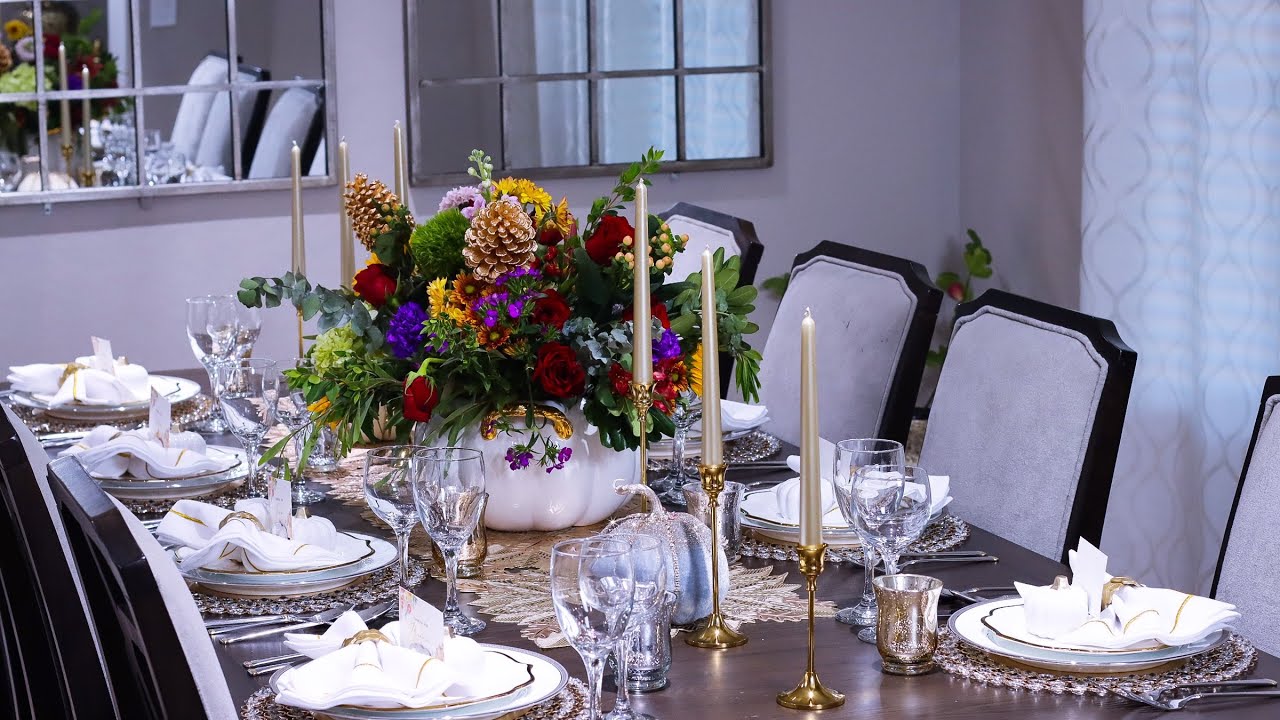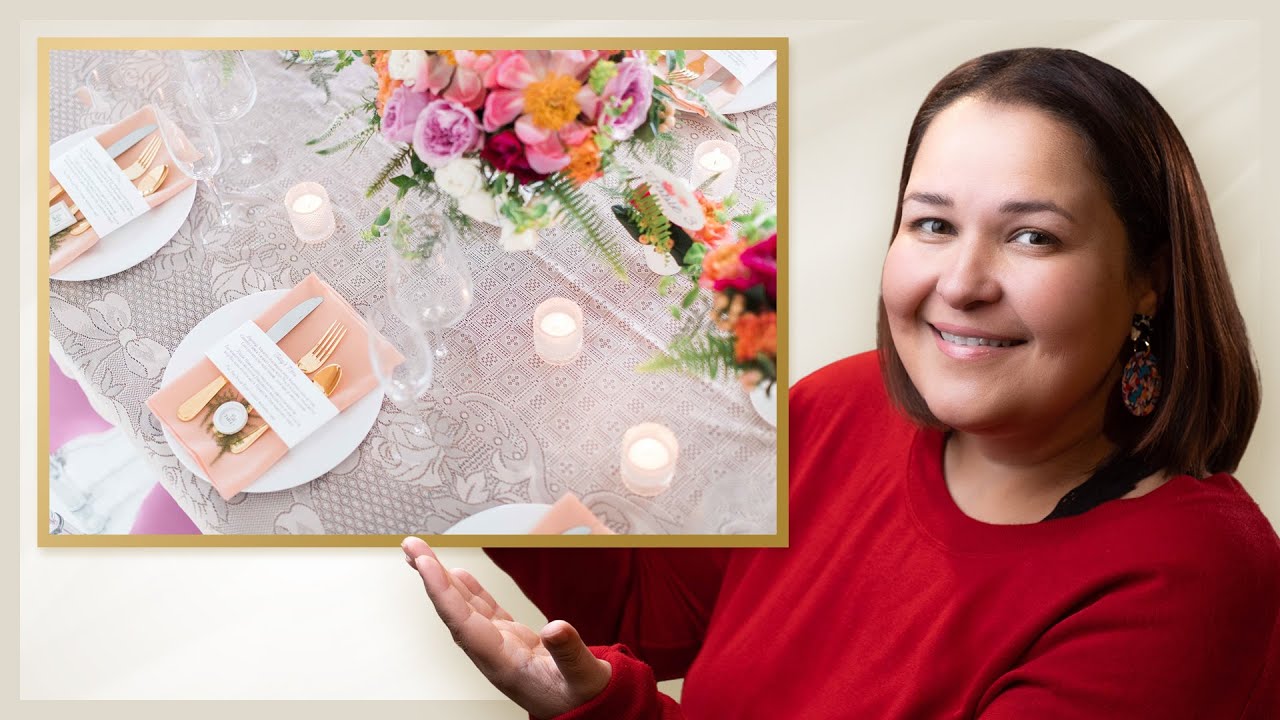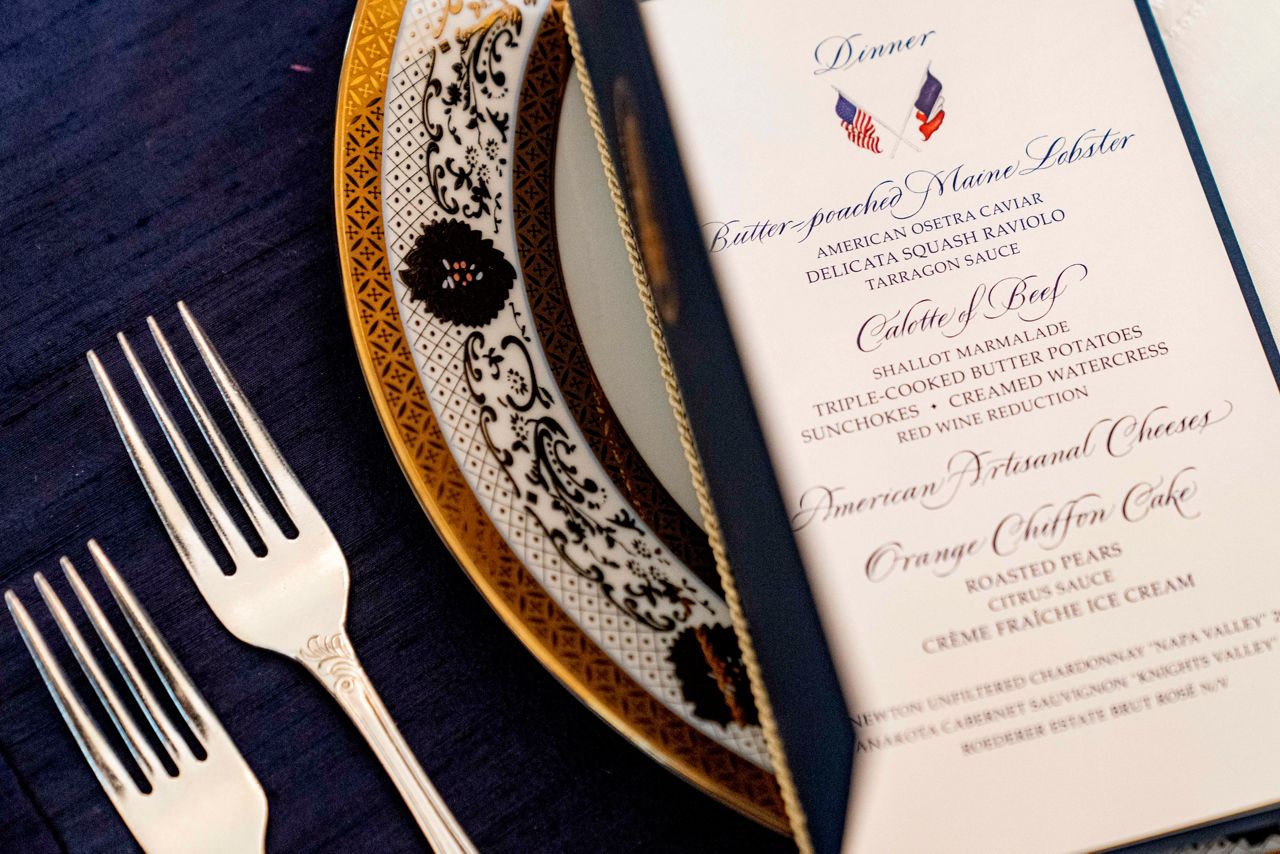Home>Dining>Events & Etiquette>How Long To Wait Before Responding To A Dinner Invitation


Events & Etiquette
How Long To Wait Before Responding To A Dinner Invitation
Modified: January 4, 2024
Discover the proper events etiquette when it comes to responding to a dinner invitation. Learn how long to wait before providing your RSVP for a delightful dining experience.
(Many of the links in this article redirect to a specific reviewed product. Your purchase of these products through affiliate links helps to generate commission for Storables.com, at no extra cost. Learn more)
Introduction
When it comes to responding to a dinner invitation, timing is key. Whether you’ve received a formal invitation or a casual invitation from a friend, it’s important to consider how long you should wait before giving your response. Responding promptly not only shows good manners, but it also helps the host to plan and prepare for the event. In this article, we’ll explore the various factors to consider when determining how long to wait before responding to a dinner invitation.
Factors such as etiquette guidelines, social norms, personal circumstances, and timing all play a role in deciding how quickly to reply to an invitation. It’s essential to strike a balance between being considerate of the host’s needs and respecting your own schedule. Let’s delve into each of these factors in more detail.
Key Takeaways:
- Respond promptly to dinner invitations, ideally within 24-48 hours, to show consideration for the host’s planning and preparation efforts. Clear communication and timely RSVPs contribute to a smooth and enjoyable dining experience.
- Consider cultural norms, personal circumstances, and event timing when responding to dinner invitations. Prioritize prompt communication, offer alternatives when conflicts arise, and respect the significance of RSVP to uphold good etiquette and maintain positive relationships.
Read more: How To Respond To A Dinner Invitation
Factors to Consider
When deciding how long to wait before responding to a dinner invitation, there are several factors to consider. These factors can help guide your decision and ensure that you respond in a timely and appropriate manner:
- Etiquette Guidelines: Etiquette guidelines can vary depending on cultural norms and personal preferences, but generally suggest responding to an invitation within a reasonable timeframe. In most cases, it is recommended to reply within 24 to 48 hours.
- Social Norms: Consider the social norms and expectations within your circle of acquaintances. Some social circles may have a more relaxed approach to RSVPs, while others may have stricter expectations. It’s important to be aware of these norms and respond accordingly.
- Personal Circumstances: Your personal circumstances can also influence your response time. If you have a busy schedule or other commitments, it’s understandable that you may need a little more time to consider and respond to the invitation. However, it’s still important to reply as soon as possible to keep the host informed.
- Timing: The timing of the event can also impact your response time. If the dinner is taking place in the near future, it’s important to reply promptly to allow the host to make necessary preparations. On the other hand, if the event is several weeks or months away, you may have a bit more leeway in your response time. However, it’s still polite to reply within a reasonable timeframe.
Considering these factors will help you make an informed decision about how long to wait before responding to a dinner invitation. However, it’s important to remember that every situation is unique, and there may be exceptions to these general guidelines. It’s always best to use your judgment and consider the specific circumstances of the invitation.
Etiquette Guidelines
Etiquette guidelines provide a framework for proper behavior in social situations, including responding to a dinner invitation. While etiquette rules can vary based on cultural and personal preferences, there are some general guidelines to keep in mind:
- Respond Promptly: It is considered polite to respond to a dinner invitation as soon as possible. Ideally, aim to reply within 24 to 48 hours of receiving the invitation. This allows the host to plan accordingly and make necessary arrangements for the event.
- Use Clear Language: When responding to an invitation, use clear and unambiguous language to convey your response. Make sure to indicate whether you accept or decline the invitation and provide a brief explanation if necessary. For example, you could say, “Thank you for the invitation. I would be delighted to attend” or “Unfortunately, I won’t be able to make it due to a prior commitment.”
- RSVP: The term “RSVP” originates from the French phrase “Répondez s’il vous plaît,” which translates to “Please respond.” When you receive an invitation that explicitly requests an RSVP, it is customary to reply promptly. This helps the host to finalize the guest list and plan the event accordingly.
- Be Considerate: Remember to be considerate of the host’s efforts and intentions. They have extended the invitation because they want to spend time with you and create a memorable gathering. Responding promptly demonstrates your appreciation and respect for their efforts.
- Communicate Changes: If you have already responded to an invitation and an unexpected circumstance arises that prevents you from attending, it’s important to inform the host as soon as possible. Apologize for the change in plans and express your regret for not being able to attend.
Following these etiquette guidelines not only showcases your good manners but also helps to ensure a smooth and enjoyable dinner experience for both the host and the other guests. It’s important to remember that good etiquette is about showing respect, consideration, and gratitude towards others.
Social Norms
When it comes to responding to a dinner invitation, social norms can play a significant role in determining how long to wait before giving your response. These norms can vary based on cultural backgrounds, regional customs, and personal preferences. Understanding and adhering to social norms can help ensure that you navigate social situations with grace and consideration. Here are some key points to consider:
- Cultural Differences: Different cultures have different expectations when it comes to responding to invitations. For example, in some cultures, it is customary to respond immediately, while in others, a longer response time may be considered acceptable. If you are not sure about the norms of a particular culture, it is always helpful to do some research or ask someone knowledgeable about the customs.
- Regional Customs: Within a country or community, there may be regional customs that influence response times. For instance, in some areas, it may be common to reply within a few days, while in others, a quicker response may be expected. Taking into account the local customs can help you align your response with the expectations of the community.
- Personal Relationships: The nature of your relationship with the host and other guests can also influence response time. For close friends or family, a more casual approach may be acceptable, allowing for a more relaxed response time. However, if the invitation comes from a professional contact or someone you are not as familiar with, it is best to respond promptly to demonstrate professionalism and respect.
- Event Type: The type of event being hosted can also impact response time. For example, a formal dinner party or a special occasion may require a quicker response, as hosts typically need to make detailed arrangements for these events. On the other hand, for a more casual gathering or a recurring dinner club, the response time may be more flexible.
- Observing Others: When unsure about response times, observing how others within your social circle or community handle these situations can provide guidance. Pay attention to the behavior of friends, colleagues, and acquaintances, and use their responses as a reference point to determine appropriate response times.
While social norms provide a general guideline, it is important to remember that every situation is unique, and personal circumstances should always be taken into consideration. Ultimately, the goal is to respond in a considerate and timely manner, while also being mindful of the expectations and customs of the social environment you are part of.
Personal Circumstances
When it comes to responding to a dinner invitation, personal circumstances can influence how long you should wait before giving your response. It’s important to take into account your own schedule, commitments, and other factors that may affect your availability for the event. Here are some things to consider when assessing your personal circumstances:
- Schedule: Take a look at your schedule and consider any conflicting commitments you may have. If you have several upcoming events or prior engagements around the same time as the dinner invitation, it may take you a bit longer to decide and respond. However, it’s best to avoid unnecessarily delaying your response, as this may inconvenience the host.
- Prior Commitments: If you have a prior commitment that overlaps with the dinner invitation, it’s essential to evaluate the importance and flexibility of that commitment. If you can reschedule or adjust your prior commitment to attend the dinner, it may be courteous to do so. However, if your previous engagement is non-negotiable, it’s best to respond promptly and politely decline the dinner invitation.
- Availability: Consider your availability and willingness to attend the event. If you genuinely want to attend and have the availability, it’s recommended to reply as soon as possible. On the other hand, if you have reservations or are unsure about attending, it’s best to take some time to consider your options but still respond within a reasonable timeframe.
- Travel or Distance: If the dinner invitation requires travel or if there is a significant distance to consider, it’s advisable to factor that into your response time. Take into account any travel arrangements or logistical challenges that may require additional time for planning or decision-making.
- Personal Circumstances: Lastly, consider any personal circumstances or situations that may affect your ability to attend the dinner. This could include health issues, family emergencies, or other unexpected events. In these cases, it is essential to communicate the situation to the host as soon as possible, express your regrets, and apologize for any inconvenience caused.
By assessing your personal circumstances and taking into account any factors that may impact your availability, you can ensure that your response to the dinner invitation is both considerate and thoughtful. While it’s important to respond within a reasonable timeframe, it’s equally crucial to be honest and respectful of your own limitations and commitments.
It’s polite to respond to a dinner invitation within 24-48 hours. If you need more time to confirm, let the host know you’re considering it and give a definite answer soon.
Timing
Timing plays a crucial role in how long you should wait before responding to a dinner invitation. The appropriate timeframe for response can vary depending on different factors. Here are some considerations regarding timing when it comes to accepting or declining a dinner invitation:
- Immediate Response: If you are certain about attending or declining the dinner invitation, it is perfectly acceptable to reply immediately. This not only shows your promptness and consideration for the host but also allows them to plan accordingly and potentially extend the invitation to someone else if needed.
- Within 24 to 48 Hours: In most cases, responding within 24 to 48 hours is considered a reasonable timeframe. This allows you some time to think about the invitation, check your schedule, and make a decision. Responding within this time frame shows good etiquette and respect for the host’s need to make arrangements.
- Event Date Proximity: Consider the time between receiving the invitation and the date of the dinner. If the event is happening in the near future, it’s best to respond promptly to ensure the host can finalize the guest list and make necessary preparations. However, if the event is several weeks or even months away, you may have a bit more leeway in your response time.
- Consideration for the Host: It’s important to be mindful of the host’s preparation timeline. If you wait too long to respond, it could cause inconvenience and make it challenging for the host to plan effectively. Be considerate of the time and effort the host is putting into organizing the dinner, and respond in a timely manner.
- Communication Limitations: If you are unable to respond immediately due to unavoidable circumstances, such as being out of town without access to phone or email, it’s important to inform the host of the delay. Send them a brief message letting them know the situation and your intended response timeframe. This shows consideration and maintains open communication.
Every dinner invitation is unique, and the timing can vary based on individual circumstances. It’s essential to find a balance between responding promptly and ensuring you have sufficient time to make an informed decision. By considering factors like event proximity, communication availability, and the host’s needs, you can determine an appropriate response time that demonstrates good manners and consideration.
The Importance of RSVP
RSVP, short for “Répondez s’il vous plaît,” is a French term that translates to “Please respond.” When you receive a dinner invitation that requests an RSVP, it’s crucial to understand and fulfill this request promptly. Here are several reasons why RSVP is important:
- Planning and Preparation: The host relies on RSVPs to determine the number of guests attending the dinner. This information is critical for planning and preparing the event, including arranging seating, estimating the amount of food and beverages needed, and ensuring a pleasant experience for everyone present. By promptly RSVPing, you help the host make accurate preparations and avoid any last-minute inconveniences.
- Budgeting: Many hosts have a budget in mind when organizing a dinner event. The cost per guest can vary, depending on factors such as the menu, venue, and additional amenities. By providing an accurate RSVP, you enable the host to plan their budget effectively and ensure that they can provide a memorable experience within their financial means.
- Consideration for the Host’s Efforts: Inviting someone to a dinner is an act of generosity and hospitality. When you promptly RSVP, it shows appreciation and consideration for the host’s efforts in extending the invitation. It demonstrates that you value their time, organization, and the event they are hosting.
- Alternative Arrangements: In some cases, hosts may need to make alternative arrangements or adjustments based on the number of confirmed guests. For example, if the guest list changes significantly due to missing RSVPs, the host may need to modify the seating arrangement or even reschedule the dinner. By RSVPing in a timely manner, you help the host avoid unnecessary complexities and enable them to plan with confidence.
- Respecting Others’ Time: When you RSVP promptly, you demonstrate respect for the time of the host and other guests. Delaying your response or failing to respond altogether can cause anxiety and uncertainty for the host, who may be awaiting confirmation of attendance. Additionally, it allows other guests to plan their commitments accordingly, such as travel arrangements and other events, based on the expected number of attendees.
RSVP is an essential aspect of good etiquette and ensures a smooth and enjoyable dinner experience for both the host and the guests. By promptly responding to a dinner invitation with a clear acceptance or decline, you show respect, consideration, and appreciation for the invitation extended to you.
Handling Conflicts and Scheduling Issues
Life is filled with unexpected events and conflicts that may interfere with attending a dinner invitation. When faced with scheduling issues or conflicts, it’s important to handle them with grace and communicate effectively with the host. Here are some tips for navigating conflicts and scheduling issues:
- Prompt Communication: If a scheduling conflict arises after you have already accepted a dinner invitation, it’s crucial to inform the host as soon as possible. Be honest about the situation and express your regrets for not being able to attend. Prompt communication allows the host to adjust their plans and potentially invite other guests to fill the spot.
- Offer Alternatives: If you still wish to attend the dinner despite the conflict, try to find alternatives to resolve the scheduling issue. See if it’s possible to rearrange or reschedule other commitments, or propose an earlier or later arrival time that allows you to attend at least part of the event. However, be understanding if the host is unable to accommodate such changes.
- Prioritization: When conflicts arise, it’s essential to prioritize your commitments and make informed decisions. Assess the significance of the conflicting event or commitment and consider the importance of attending the dinner. This will help you determine the best course of action and communicate your decision effectively to the host.
- Considerate Explanations: If you decline the dinner invitation due to a conflict, provide the host with a considerate explanation. While specific details may not always be necessary, offering a brief explanation can help the host understand your situation and show that you value their invitation and the event they have planned.
- Respect for Others’ Time: When dealing with conflicts and scheduling issues, it’s important to be mindful of the impact your decisions may have on the host and other guests. Be considerate of their time, efforts, and any potential inconveniences caused by your scheduling conflicts. Show appreciation and apologize for any inconvenience caused.
Handling conflicts and scheduling issues with transparency, respect, and clear communication is key to maintaining positive relationships and social etiquette. While it may require some flexibility and understanding from both parties involved, finding a resolution that works for everyone involved can help preserve the harmony of the event and ensure a positive experience for all.
Conclusion
Responding to a dinner invitation in a timely and considerate manner is an essential aspect of events etiquette. By understanding the various factors to consider, such as etiquette guidelines, social norms, personal circumstances, timing, and the significance of RSVP, you can navigate these situations with grace and respect.
Etiquette guidelines suggest responding to an invitation within 24 to 48 hours, using clear language and indicating your acceptance or decline. RSVPing promptly allows the host to plan and prepare for the event, taking into account factors such as budgeting, seating arrangements, and other logistical details. It demonstrates consideration for the host’s efforts and the guests’ experience, and it shows respect for everyone’s time.
Additionally, being aware of social norms and personal circumstances helps you make informed decisions about response times. Taking into account cultural differences, regional customs, and the nature of your relationship with the host can guide you in determining an appropriate timeframe for accepting or declining the invitation. Evaluating your schedule, prior commitments, and availability also ensures that you respond authentically and responsibly.
It’s important to communicate promptly when conflicts or scheduling issues arise. By providing prompt, considerate explanations and offering alternatives when possible, you show respect for the host and other guests. Prioritizing your commitments and being mindful of the impact of your decisions on others’ time contribute to maintaining positive relationships and upholding social etiquette.
In conclusion, responding to a dinner invitation demonstrates your appreciation for the host’s invitation and the efforts they have put into organizing the event. By adhering to etiquette guidelines, considering social norms, evaluating personal circumstances, being mindful of timing, and understanding the significance of RSVP, you can navigate these situations with grace and enhance the overall experience for everyone involved.
Frequently Asked Questions about How Long To Wait Before Responding To A Dinner Invitation
Was this page helpful?
At Storables.com, we guarantee accurate and reliable information. Our content, validated by Expert Board Contributors, is crafted following stringent Editorial Policies. We're committed to providing you with well-researched, expert-backed insights for all your informational needs.















0 thoughts on “How Long To Wait Before Responding To A Dinner Invitation”